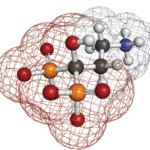Background & Objectives
Figueroa-Parra et al. set out to evaluate the effect of glucocorticoid regimens on renal response, infections and mortality among patients with lupus nephritis (LN). Glucocorticoids are strongly associated with infections. The researchers aimed to assess the degree to which renal benefits outweigh the risks of infection and death.
Methods
The researchers performed a systematic review and meta-analysis of 50 control arms from 37 randomized clinical trials. The selected trials had to meet the criteria of biopsy-proven LN, use a protocolized scheme of glucocorticoids in combination with mycophenolic acid analogs or cyclophosphamide, and report the outcomes of complete response, serious infections or death. The starting dose of glucocorticoids, tapering scheme and use of glucocorticoid pulses were abstracted. Meta-analysis of proportions, meta-regression and subgroup meta-analysis were performed at six and 12 months for all outcomes.
Results
The predicted rates of complete response, serious infections and death when starting with 25 mg of oral prednisone daily, without pulses, were 19.5%, 3.2% and 0.2%, respectively. Starting with 60 mg of oral prednisone daily, without pulses, increased the rates to 34.6%, 12.1% and 2.7%, respectively. Adding glucocorticoid pulses increased the rates of complete response and death, but not serious infections. The researchers observed a dose-response gradient between the initial glucocorticoid dose and all the outcomes at six months after accounting for the use of glucocorticoid pulses, underlying immunosuppressant and baseline proteinuria.
Conclusions
A higher exposure to glucocorticoids during the initial treatment of LN was associated with better renal outcomes, but at the cost of increased infections and mortality. Clinicians must weigh the benefits and harms that higher doses of glucocorticoids confer in the first six months of LN treatment.
For complete details, including source material, refer to the full study.
Excerpted & Adapted From
Figueroa-Parra G, Cuéllar-Gutiérrez MC, González- Treviño M, et al. Impact of glucocorticoid dose on complete response, serious infections, and mortality during the initial therapy of lupus nephritis: A systematic review and meta-analysis of the control arms of randomized controlled trials. Arthritis Rheumatol. 2024 Sep;76(9).

